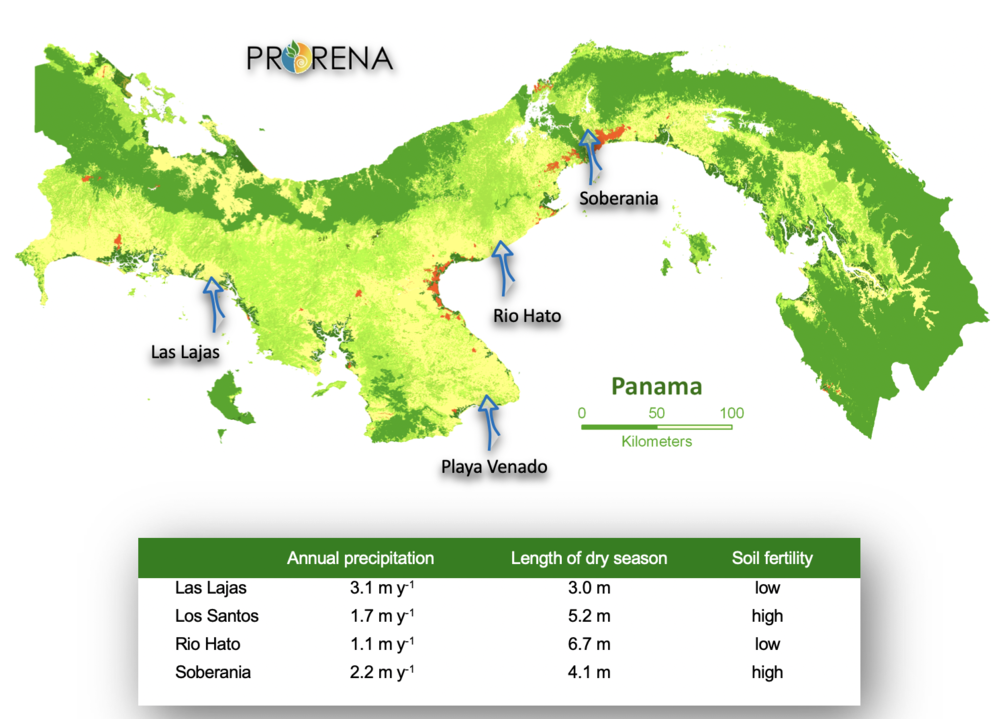PRORENA, Panama
PRORENA, Panama
In 2000, the Native Species Reforestation Project (PRORENA) was created in Panama as a joint initiative of the Smithsonian Tropical Research Institute, the Yale School of Forestry and Environmental Studies, and a number of national and international partners and groups. The primary objective of PRORENA was to develop viable strategies for the restoration of diverse, native forests to degraded tropical lands in a socially and economically attractive manner. The underlying logic is that reforestation strategies should be ecologically viable and also respond to the economic, social, and cultural needs of landholders and local communities. The primary research questions driving PRORENA’s activities and research programs include: (1) which tree species grow best in which sites, in which combinations, and under what conditions, and how can we produce and manage them to maximize the yield of desired benefits and services?; and (2) what are the most important factors influencing land use in rural areas of Panama, and what are the obstacles and/or opportunities for integrating reforestation into current land uses?
Some results:
- PRORENA produced 100,00 seedlings per year for out planting to prject partners.
- PRORENA collected information on locations of seed trees, seed storage and propagation techniques for 75 species.

